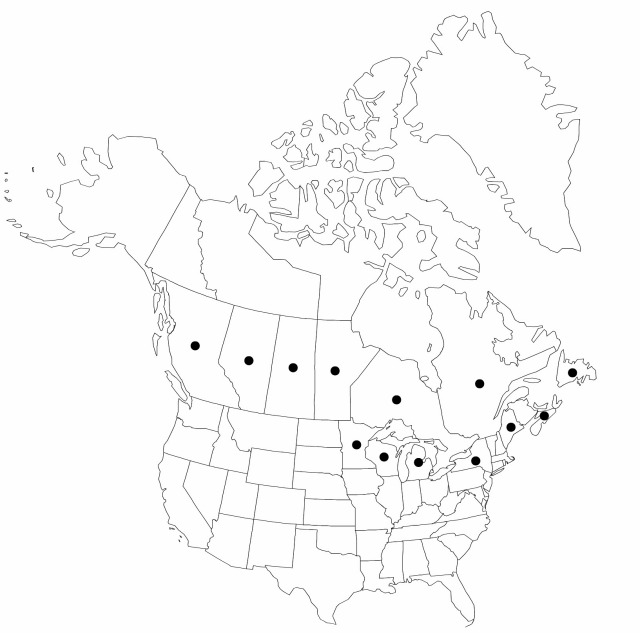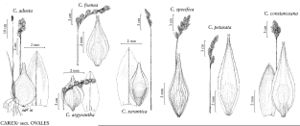Difference between revisions of "Carex adusta"
in W. J. Hooker, Fl. Bor.-Amer. 2: 215. 1839.
imported>Volume Importer |
imported>Volume Importer |
||
| Line 1: | Line 1: | ||
{{Treatment/ID | {{Treatment/ID | ||
|accepted_name=Carex adusta | |accepted_name=Carex adusta | ||
| − | |accepted_authority=Boott | + | |accepted_authority=Boott |
|publications={{Treatment/Publication | |publications={{Treatment/Publication | ||
|title=in W. J. Hooker, Fl. Bor.-Amer. | |title=in W. J. Hooker, Fl. Bor.-Amer. | ||
| Line 39: | Line 39: | ||
-->{{#Taxon: | -->{{#Taxon: | ||
name=Carex adusta | name=Carex adusta | ||
| − | |authority=Boott | + | |authority=Boott |
|rank=species | |rank=species | ||
|parent rank=section | |parent rank=section | ||
| Line 53: | Line 53: | ||
|publication year=1839 | |publication year=1839 | ||
|special status=Illustrated;Endemic | |special status=Illustrated;Endemic | ||
| − | |source xml=https:// | + | |source xml=https://bitbucket.org/aafc-mbb/fna-data-curation/src/2e0870ddd59836b60bcf96646a41e87ea5a5943a/coarse_grained_fna_xml/V23/V23_620.xml |
|genus=Carex | |genus=Carex | ||
|section=Carex sect. Ovales | |section=Carex sect. Ovales | ||
Latest revision as of 20:42, 5 November 2020
Plants densely cespitose. Culms 25–80 cm. Leaves: sheaths adaxially hyaline, often green-veined nearly to collar, summits U- or V-shaped or rounded, sometimes prolonged to 1.5 mm beyond collar; distal ligules 1–4 mm; blades 2–5 per fertile culm, 7–25 cm × 2–3.5 mm. Inflorescences stiffly erect, dense or open, greenish brown to gold, 2–4.5 cm × 12–20 mm; proximal internode 2–15 mm; 2d internode 2.5–5 mm; proximal bracts leaflike, much longer than inflorescence, or bristlelike. Spikes 5–8(–11), usually distinct, broadly ovoid, 8–11 × 5–8 mm, base and apex acute to rounded. Pistillate scales reddish brown, with paler center, ovate to broadly ovate, 4–5.5 mm, equaling, ± covering perigynia, hyaline margin absent or to 0.2 mm, apex acute to mucronate. Perigynia ascending to spreading, green, gold, or cream colored, conspicuously 7–11-veined abaxially, conspicuously 0(–2)-veined adaxially, ovate to broadly ovate, plano-convex to biconvex, 4–5 × 1.9–2.5 mm, 0.7–1.1 mm thick, margin flat, including wing 0.2–0.6 mm wide, often thickened; beak gold at tip, flat, ciliate-serrulate, abaxial suture usually inconspicuous, distance from beak tip to achene 1.7–2 mm. Achenes obovate to elliptic, 2.1–2.5 × 1.6–2 mm, 0.7–1 mm thick. 2n = 78.
Phenology: Fruiting spring–summer.
Habitat: Dry, acidic, sandy soils of open woods and clearings, moist shores
Elevation: 0–400 m
Distribution

Alta., B.C., Man., Nfld. and Labr. (Nfld.), N.S., Ont., Que., Sask., Maine, Mich., Minn., N.Y., Wis.
Discussion
Selected References
None.
